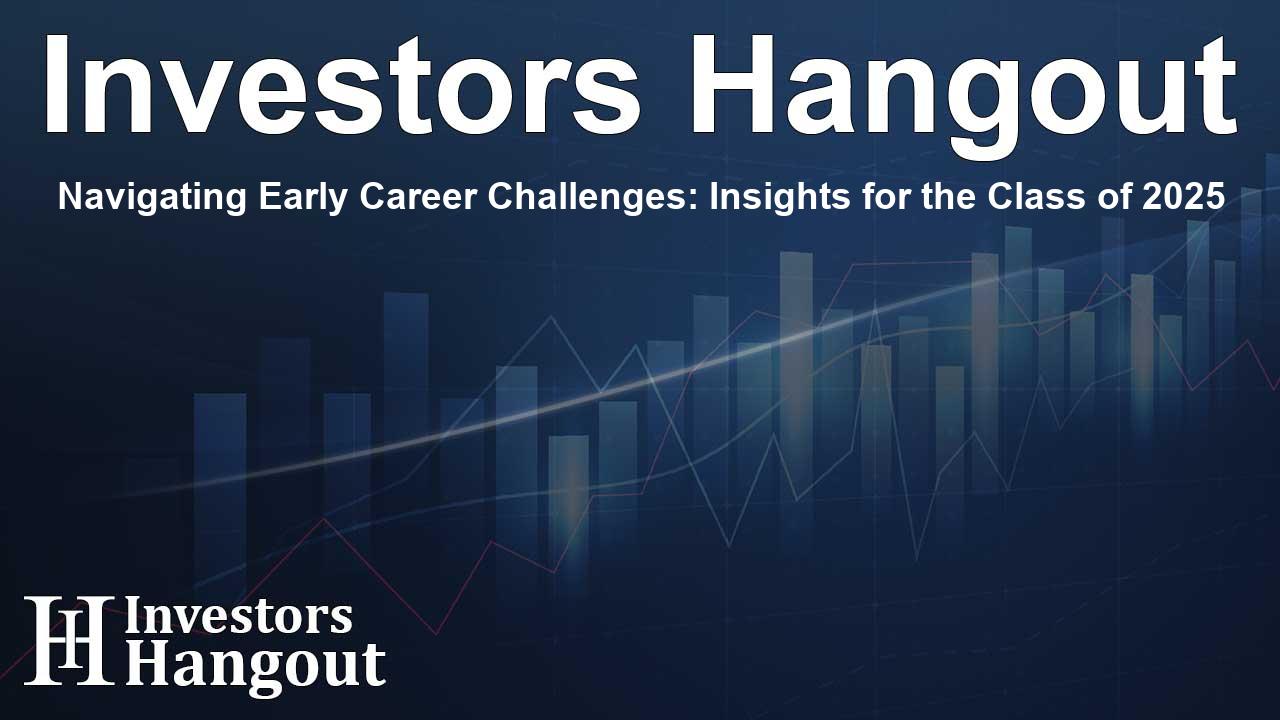Navigating Early Career Challenges: Insights for the Class of 2025

Understanding the Early Career Landscape for 2025 Graduates
As the class of 2025 eagerly anticipates their entry into the professional world, it's essential to recognize the array of challenges that await them. New insights drawn from a comprehensive research survey conducted by a distinguished talent solutions and business consulting firm shed light on the distinct obstacles early-career professionals might encounter. This research, gleaned from nearly 1,000 workers, explores significant hurdles and the techniques to effectively navigate them.
Key Challenges Faced by New Graduates
According to the survey, new graduates often confront several key challenges as they transition into full-time employment:
Limited Mentorship Opportunities
One of the critical stumbling blocks identified is the lack of mentorship. A significant 45% of respondents shared that they did not have access to a mentor or peer to guide them in the formative stages of their careers. This absence of guidance can hinder young professionals from making informed decisions and successfully navigating their new roles.
Support in Managing Workloads
Another pressing issue is the challenge related to workload management. Nearly 39% of participants noted difficulty in prioritizing tasks effectively, leading to feelings of being overwhelmed. This obstacle highlights the need for efficient time management strategies that new professionals can adopt to enhance their productivity.
Insufficient Onboarding Processes
Many new employees reported feeling unprepared due to what they described as insufficient onboarding procedures. Approximately 36% expressed concerns about inadequate training from employers, making it crucial for companies to refine their onboarding methods to better equip new hires for success.
Lack of Internship Experience
A staggering 34% of new entrants into the workforce entered without prior internship or relevant work experience. This gap can place graduates at a competitive disadvantage, emphasizing the importance of pursuing internships and related opportunities while still in school to gain the necessary experience and skills.
Bridging the Skills Gap
Finally, many individuals, around 34%, expressed frustration over a perceived skills gap, feeling unprepared to make an immediate impact in their new roles. This feeling can be daunting, but it also highlights the importance of ongoing learning and skill development to remain competitive in today's marketplace.
Expert Insights: Navigating the Job Market Successfully
Brandi Britton, an executive director with the consulting firm, shares valuable wisdom on the current job market for fresh graduates. In her discussions, she emphasizes the essential skills candidates should cultivate to distinguish themselves in a crowded job search environment. She further explores which industries are actively seeking early-career professionals, providing a roadmap for successful employment.
Effective Job Search Strategies
Britton suggests that candidates proactively seek out opportunities to showcase their unique skills and experiences. Networking, leveraging social media platforms, and building a strong online presence can help individuals create a robust personal brand that attracts potential employers.
Industries with Growing Demand
Additionally, specific sectors are highlighted as particularly open to hiring early-career talent. These industries are continually evolving and can provide promising career pathways for individuals looking to establish themselves professionally.
Practical Advice for Overcoming Early Career Hurdles
To overcome the hurdles mentioned, Britton advocates for continuous professional development. This might include pursuing certifications, attending workshops, or finding opportunities for skill enhancement. By actively working to bridge their skills gap, recent graduates can improve their confidence and readiness to tackle their new roles effectively.
Frequently Asked Questions
What are common challenges faced by graduates entering the workforce?
Graduates often struggle with limited mentorship, workload management, insufficient onboarding, lack of internship experience, and skills gaps.
How can new graduates find mentors?
Networking, attending industry events, and engaging on professional platforms like LinkedIn can help graduates find mentors.
What skills are most important for early-career professionals?
Time management, adaptability, and effective communication are critical skills for new professionals.
Why is prior internship experience important?
Internships provide practical experience and skills that can significantly boost a graduate's employability.
What should graduates do if they lack experience?
They should focus on building their skills through online courses, volunteering, and internships to become more competitive.
About The Author
Contact Hannah Lewis privately here. Or send an email with ATTN: Hannah Lewis as the subject to contact@investorshangout.com.
About Investors Hangout
Investors Hangout is a leading online stock forum for financial discussion and learning, offering a wide range of free tools and resources. It draws in traders of all levels, who exchange market knowledge, investigate trading tactics, and keep an eye on industry developments in real time. Featuring financial articles, stock message boards, quotes, charts, company profiles, and live news updates. Through cooperative learning and a wealth of informational resources, it helps users from novices creating their first portfolios to experts honing their techniques. Join Investors Hangout today: https://investorshangout.com/
The content of this article is based on factual, publicly available information and does not represent legal, financial, or investment advice. Investors Hangout does not offer financial advice, and the author is not a licensed financial advisor. Consult a qualified advisor before making any financial or investment decisions based on this article. This article should not be considered advice to purchase, sell, or hold any securities or other investments. If any of the material provided here is inaccurate, please contact us for corrections.
